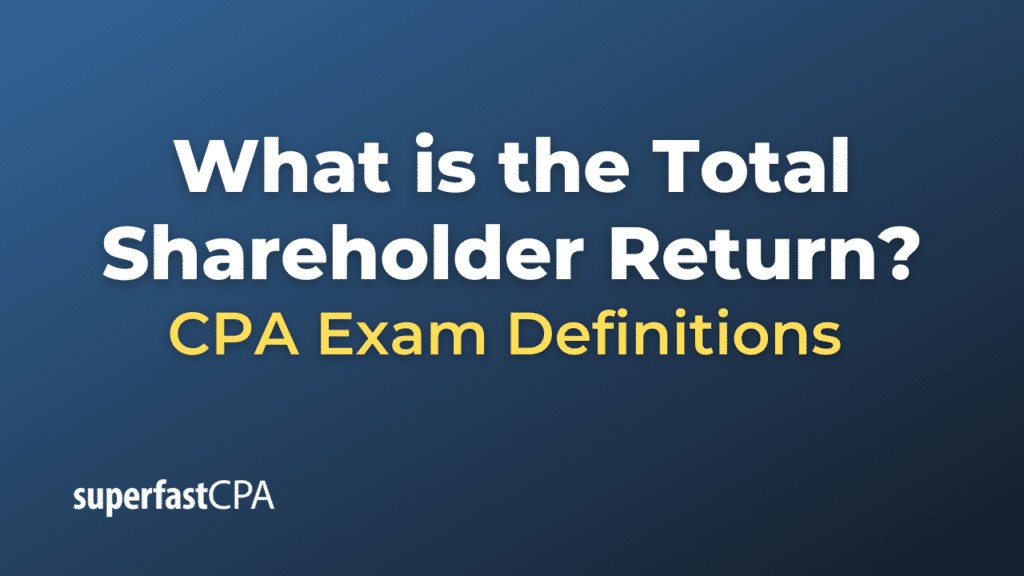Total Shareholder Return
Total Shareholder Return (TSR) is a measure used to compare the performance of different stocks or to compare the performance of a particular stock against a benchmark or industry average. TSR captures both the change in the stock price over a given period and the dividends paid during that period, which assumes that dividends are reinvested in the stock.
In essence, TSR provides a comprehensive picture of the stock’s overall financial yield to shareholders over a specific period.
The formula to calculate TSR is:
TSR = Ending stock price + Dividends received − Beginning stock price / Beginning stock price × 100%
This will give the total return as a percentage.
Example of the Total Shareholder Return
Let’s walk through a detailed example to understand Total Shareholder Return (TSR) more clearly.
Example: Imagine you invested in the stock of a company called “TechNova Corp.” Here’s a brief overview of your investment:
- January 1, 2022: You bought the stock at $100 per share.
- December 31, 2022: The stock price reached $120 per share.
- During 2022: TechNova Corp. distributed dividends totaling $5 per share.
We’ll use the TSR formula to calculate the total return on your investment for the year 2022:
TSR = Ending stock price + Dividends received − Beginning stock price / Beginning stock price × 100%
Plugging in the given numbers:
TSR= 120 + 5 − 100 / 100 × 100%
TSR = 25 / 100 × 100%
TSR = 25%
So, for the year 2022, your total return from TechNova Corp., when considering both stock price appreciation and dividends, is 25%.
Analysis: This means if you invested $1,000 in TechNova Corp. at the start of the year, by the end of the year, your investment would have grown to $1,250 (excluding any other fees or taxes). This $1,250 includes the growth in the stock’s value as well as dividends that, in this example, we assume you reinvested in the stock.
The TSR provides a holistic view of the return because it accounts for all avenues through which shareholders receive value. In this example, even if the stock price had stayed the same, a dividend payment would still have provided a positive return to the investor.













